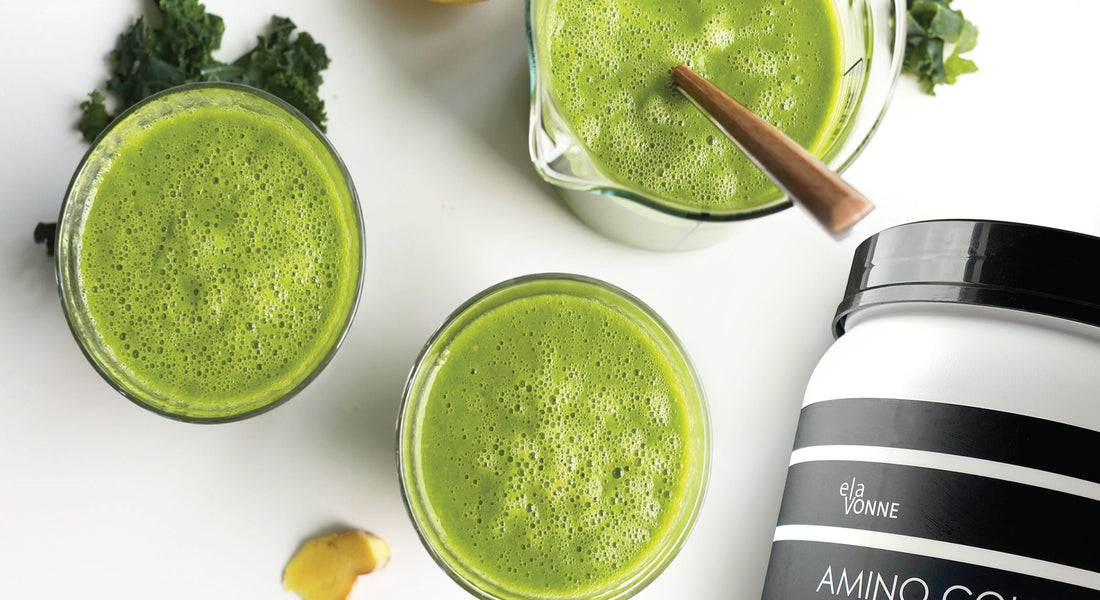Hyaluronic acid (HA) may sound like something you wouldn't want near your body, but in reality, it plays a crucial role in cosmetic dermatology, osteoarthritis treatment, and organic skincare. It acts as a protective agent for the cells in your body, safeguarding delicate collagen, elastin, and cartilage.
While dermatologists and rheumatologists often rely on hyaluronan injectables for immediate benefits, there are alternative ways to increase hyaluronic acid levels without the need for needles—by incorporating hyaluronic acid foods into your diet you can also reap many healthy benefits.
Since hyaluronic acid, or hyaluronan, is naturally produced in the body, it can also be found naturally in certain foods. It's not as exotic as it may sound, and consuming foods that enhance or boost the production of hyaluronic acid is just as important as consuming HA directly.
Here are three effective ways to naturally boost hyaluronic acid levels through your diet:
- Include Fruits and Vegetables Rich in Naringenin
Naringenin is a flavonoid—a compound found abundantly in grapefruits, oranges, bananas, and tomatoes. This flavonoid has antioxidant and anti-inflammatory effects that inhibit the breakdown of hyaluronic acid in the body. It also helps protect collagen, making it beneficial for your skin.

- Embrace Leafy Greens and Sprouts
Cabbage, broccoli, and Brussels sprouts are rich in hyaluronic acid. Moreover, cabbage is high in vitamin C, which not only protects but also enhances the natural production of HA and collagen. This is particularly great news for your skin. For optimal results, choose the purple variety of cabbage, as it contains higher levels of natural vitamins, phytonutrients, and organosulfides.
If you don't mind the carbohydrate content, sweet potatoes and other starchy root vegetables are also excellent sources of hyaluronic acid.
- Consider Hyaluronic Acid Supplements
While obtaining natural nutrients from a healthy, organic diet is ideal, it's challenging to consume sufficient amounts of cabbage, bananas, and Brussels sprouts to consistently achieve optimal HA levels. That's where hyaluronic acid supplements come in.
We recommend considering a pure hyaluronic acid supplement like Amino Collagen C with Hyaluronic Acid by Elavonne. This supplement replenishes HA in the body and provides a highly bioavailable source of collagen. If you believe you require a higher HA intake, it's best to consult your doctor for personalized advice.
The Benefits of a Hyaluronic Acid Diet
A diet rich in hyaluronic acid has been associated with a longer lifespan and potential reversal of the effects of unhealthy habits such as excessive sun exposure or smoking. The idea of hyaluronic acid being linked to healthy aging was explored almost two decades ago in a study conducted in a Japanese village. The study revealed that residents, despite having other detrimental health habits, lived active lives well into their 90s and maintained excellent skin quality due to their diet high in hyaluronic acid foods.
In addition to the potential for a longer life, a hyaluronic acid diet offers immediate benefits such as increased eye and skin hydration. If you undergo cosmetic dermal fillers, you can expect them to last longer as well.
When hyaluronic acid is consistently present in the body, numerous advantages can be observed, including reduced wrinkle formation, improved flexibility and joint movement, protection of cartilage, increased eye hydration, improved gut health, and reduced collagen loss.
Start a regular routine with Amino Collagen C and enhance the results of your healthy diet.




